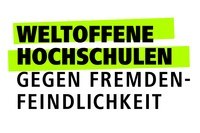| E-Mail: | fuerholzer(at)uni-koblenz.de |
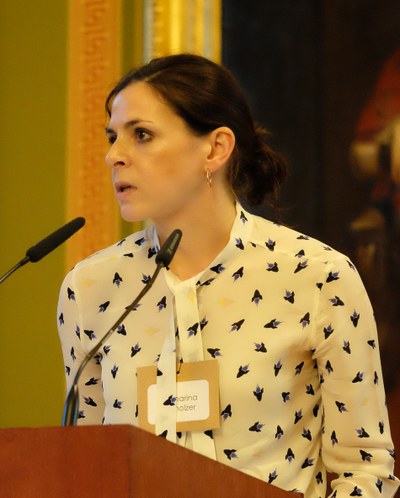
Prof. Dr. Katharina Fürholzer
News
Conferences & Publications (CfP)

Forgotten Voices of Modernity. German Women Authors of the Interwar Period (Workshop & Edited Volume)
Engagement with German-language literary production of the interwar period is still largely dominated by canonized male authors. Numerous women writers who were productive and successful in the 1920s and early 1930s are now almost forgotten or receive only marginal attention in scholarship. This workshop and the subsequent edited volume aim to contribute to the rediscovery and critical reassessment of these authors. We are therefore seeking contributions that address their literary work, conditions of publication, networks, and reception history. We welcome both analyses of individual works and cultural- and social-historical contextualizations. Particularly encouraged are contributions that adopt intersectional perspectives and examine the entanglements of gender with other categories such as class, ethnic or religious affiliation, sexual orientation, disability, or regional background. This approach is intended to make visible those authors who, due to multiple forms of marginalization, have been especially strongly pushed out of literary memory.
Workshop: 10.7., 17.7. & 24.7.2026 (online)
CfP: Forgotten Voices (Deadline Abstracts: 15.1.2026)
In cooperation with Dr. Marcella Fassio (German Studies, University of Halle/Wittenberg)
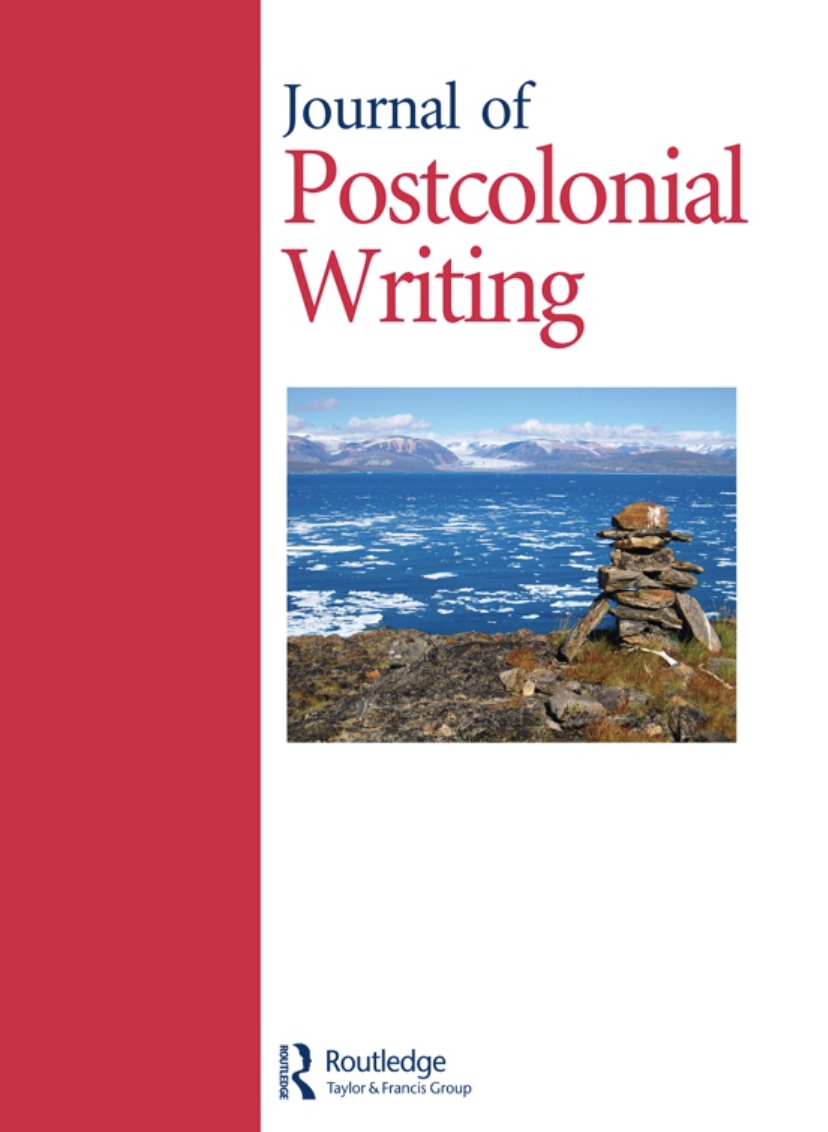
Postcolonial Medical and Health Humanities: South Asian Literary Imaginaries and Epistemologies (Special Issue)
The special issue, to be published at the Journal of Postcolonial Writing, invites both theoretical reflections on the postcolonial medical and health humanities, and literary analyses of cultural texts which engage with the intersections of health, coloniality, and postcoloniality in South Asia and its diasporic communities. In particular, we invite contributions which will address the following four intersecting questions:
- How do cultural texts from South Asia and its diasporic communities negotiate the colonial ramifications of health and well-being in general, and how do they address the colonial history of biomedicine and the coloniality of medicine more particularly? What role do non-hegemonic perspectives play in these negotiations?
- How do South Asian cultural texts address contemporary forms of stratification, discrimination, and exploitation in biomedicine and healthcare in postcolonial contexts? How are these related to colonial and neocolonial fault-lines, but also to regional and/or globalized forms of implication beyond the North–South binary?
- What role do epistemic and linguistic issues play in different literary imaginaries of health and medicine? That is, how do different texts address questions of knowledge production, in particular the suppression and recovery of medical and health epistemologies, and in what languages?
- Through what representational politics and poetics do different texts address these questions?
CfP: Postcolonial Medical & Health Humanities (Deadline Abstracts: 1.4.2026)
In cooperation with Prof. Dr. Julia Wurr (English Literature, University of Oldenburg) & Prof. Dr. Antara Chatterjee (Literature, IISER Bhopal)

Floods in Literature (Conference & Edited Volume)
Floods are among the defining natural experiences that have been represented in literature for centuries. Literary depictions of floods articulate early forms of ecological critique, while interpretations of flooding as divine punishment persisted well into the modern era. From a research perspective, flood narratives are closely connected to questions of hydropolitics, state preparedness, media representations, and gendered semantics of the natural event and its rescuers. Situated at the intersection of literary disaster studies, ecocriticism, the blue humanities, and the recently emerging field of literary meteorology, this project explores the largely uncharted literary representations of floods – particularly in German-speaking and Central European contexts. Given the significance of rivers such as the Rhine, Neckar, and Elbe in the German literary imagination, the project seeks to map flood narratives as a distinctive part of this tradition.
Conference: 15.–16. October 2026, University of Koblenz
In cooperation with Korbinian Lindel (German Studies, University of Koblenz)
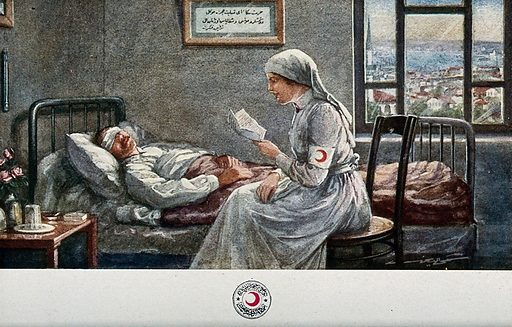
Nursing Poetics: Literary Representations and Writings by Professional Caregivers (Edited Volume)
The history of professional nursing is also a literary history – a connection that has so far received little scholarly attention. This edited volume explores how professional caregivers have appeared in literature since the 19th century, the beginning of modern nursing: as figures in novels, poems, and plays, as well as authors who process their professional experiences in literary form. It focuses on texts in which institutionalized care becomes visible as a profession, experience, or space of reflection, thereby shedding light on an underexplored dimension of literary history.
In cooperation with Prof. Dr. Sabine Nover (Nursing Science, University of Koblenz)
Current Events
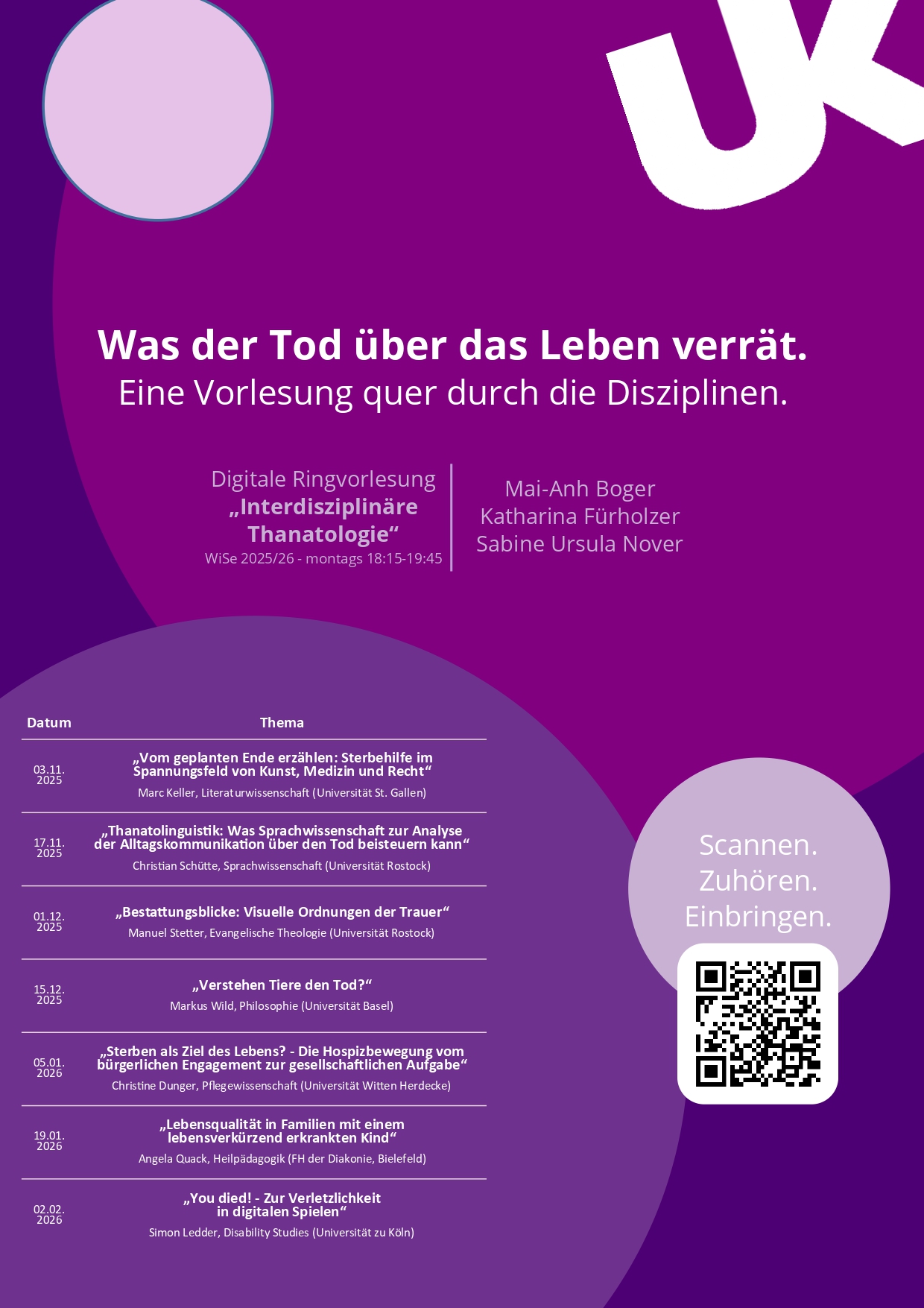
Digital Lecture Series “Interdisciplinary Thanatology”
How do we shape our engagement with dying and death? What challenges, but also what potentials, arise from confronting the end of life? How do other species deal with death? And what traces does death leave in language, in various media, in social practices, or in professional contexts?
These questions touch upon fundamental conditions of human existence—and cannot be confined to a single academic discipline.
The online lecture series Interdisciplinary Thanatology addresses these issues in an explicitly interdisciplinary format. Through guest lectures by scholars from seven different disciplines, it offers insights into current research on dying, death, and mourning.
The lecture series is a joint initiative of Department 1 (Special Needs Education, Nursing Science) and Department 2 (German Studies) at the University of Koblenz. It is aimed at students, lecturers, and researchers from all disciplines, as well as at members of the interested public.
Log in and listen at: https://olat.vcrp.de/bigbluebutton/112135925519103
Vita
Career
Professional Career
- 2024–: Professor (W1) of Interdisciplinarity Studies, Institute of German Studies (Literary Studies/Literary Didactics), University of Koblenz, DE
- 2022–2024: Scientific Coordinator & Postdoctoral Researcher, Department “Aging of Individuals and Society” (AGIS), University of Rostock, DE
- 2019–2022: Postdoctoral visiting scholar, Department of Comparative Literature & Literary Theory, University of Pennsylvania, US
- 2017–2019: Research Associate (Wiss. Mitarbeiterin), Institute of the History, Theory, and Ethics of Medicine, University of Ulm, DE
- 2016–2017: Lecturer, Institute of German Studies, University of Münster (WWU), DE
- 2011–2014: Research Assistant, Institute for the History and Ethics of Medicine (MLU Halle), The Junge Akademie (Berlin-Brandenburg Academy of Sciences and Humanities / National Academy of Sciences Leopoldina), Institute of Scandinavian Studies (LMU Munich), Institute for Ethics, History and Theory of Medicine (LMU Munich)
Education
- 2024: Habilitation (Dr. phil. habil.), Venia Legendi “General and Comparative Literature,” University of Innsbruck, AT
- 2017: Ph.D. (Joint Doctorate), University of Münster, DE & Ghent University, BE
- 2013–2017: Doctoral Studies at the Graduate School “Practices of Literature,” University of Münster & Ghent University
- 2013: Magistra Artium, LMU Munich, DE
- 2007–2013: Magister Studies in Scandinavian Studies, Comparative Literature & American Literary History, LMU Munich, DE & King’s College London, UK
- 2005: State-Certified Translator (Spanish), Sprachen & Dolmetscher Institut Munich, DE
Grants & Awards
Grants
- Event Funding from the de Gruyter Foundation (2025–2026)
- Personnel funding through the program “NaWi – Research with Student Assistants,” University of Koblenz, for employing a student assistant (2025–2026)
- Start-up funding from the Career Fund (IFGPZ), University of Koblenz, for the research project “World and Value. European Humanitarianism as Narration and Construction” (2025–2026)
- Personnel funding from the Professorinnenprogramm III, University of Rostock, for employing a student assistant (2023 and 2024)
- Start-up funding from the Department “Knowledge–Culture–Transformation” (WKT), University of Rostock, for the research project “Literature at the End of Life”
- Research funding from the Fritz Thyssen Foundation for the project “Femme aphasique. Language Disorders as Poetic Practice in the Work of U.S. American Women Poets” (Program of Comparative Literature & Literary Theory, University of Pennsylvania, 2019–2020)
- Publication and event funding from the OA Book Funds of the University of Rostock and FU Berlin, Department AGIS, University of Innsbruck, Land Vorarlberg, Ulm University Society, German Academic Scholarship Foundation, DFG Research Group “Literary Form,” Equal Opportunities Office WWU Münster, and Smartnetwork WWU Münster (2015–)
- Travel, workshop, and conference grants from BMBF, ELSA, Volkswagen Foundation, German Academic Scholarship Foundation, Max Weber Program, Protestant Academy Berlin, German Literature Archive Marbach, University of Rostock (2008–2022)
- Translation grants from the German Translators’ Fund (2020) and the Danish Arts Foundation (2020)
Scholarships
- Doctoral scholarship of the German Academic Scholarship Foundation (2014–2017)
- Study scholarship of the Max Weber Program Bavaria for highly talented students (2007–2013)
- Study abroad scholarships of the Erasmus Program and the Max Weber Program Bavaria (King’s College London, 2010–2011)
- Language course scholarships of the Max Weber Program Bavaria and the Swedish Institute (2008, 2010, 2011)
Awards & Distinctions
- Early Career Award of the Academy for Ethics in Medicine (AEM) (2023)
- Fellow of the GSO Leadership Academy (2022–2023)
- Mentee of the MuT Program Baden-Württemberg (2018–2019)
- Faculty Prize of the Faculty of Languages and Literatures, LMU Munich, for the Magister degree “with distinction”
- Valedictorian
Offices
Editorial, Peer Review & Advisory Activities
- Founding member and Co-Editor of the journal Re:visit. Humanities & Medicine in Dialogue (with Julia Pröll & Maria Heidegger) (2022–)
- Scientific Advisory Board of the series Medical Humanities, Franz Steiner Verlag
- Scientific Committee of the research group Cognition in Comparative Poetics (COPOS), University of Salamanca
- Reviewer and committee activities (institutions):
- Deutsche Forschungsgemeinschaft (DFG)
- Swiss National Science Foundation (SNF)
- Volkswagen Foundation
- German Academic Exchange Service (DAAD)
- German Academic Scholarship Foundation
- Max Weber Program Bavaria (Elitenetzwerk Bayern)
- German Society for Hospital History (Research Prize)
- Graduate School “Practices of Literature” (GSPoL), University of Münster (Doctoral and DAAD fellowship selection; 2015–2016)
- Reviewing activities (journals & publishers):
- Zeitschrift für interkulturelle Germanistik (ZiG)
- Journal of the Midwestern Modern Language Association
- World Literature Studies
- Zeitschrift für Fantastikforschung (ZFF)
- Textpraxis. Digitales Journal für Philologie
- Sudhoffs Archiv
- Ethik in der Medizin
- Journal of Science Education
- Research Ethic
- NanoEthics
- Science and Engineering Ethics
- GMS Journal for Medical Education
- Medical Science Monitor
- Transcript Verlag
- Bloomsbury Publishing
- Grazer Universitätsverlag
Committee & Leadership Roles
- Co-Head of the Working Group “Language & Ethics,” Academy for Ethics in Medicine (Co-Head: 2023÷, Member: 2013–)
- Founding member and steering committee member of the “German Network for Narrative Medicine” (2019–)
- Committee member of the German Academic Scholarship Foundation and the Max Weber Program Bavaria (each since 2015)
- Board member and doctoral representatives’ spokesperson at the Graduate School “Practices of Literature,” University of Münster (2015–2016)
- Committee member of the doctoral and DAAD fellowship selection at the Graduate School “Practices of Literature,” University of Münster (2014–2015)
Research
Research Areas
- Theory & Ethics of Interdisciplinarity
- Medical & Health Humanities (esp. Literature and Medicine)
- Aging & Death Studies (esp. Literature at the End of Life)
- Genre Theory and Genre Ethics (esp. Poetry, Pathography)
- Ethics and Aesthetics
- Literature and the Limits of Language
- Literary Peace Studies (including Humanitarianism Studies)
Projects (Selection)
Current Research Projects
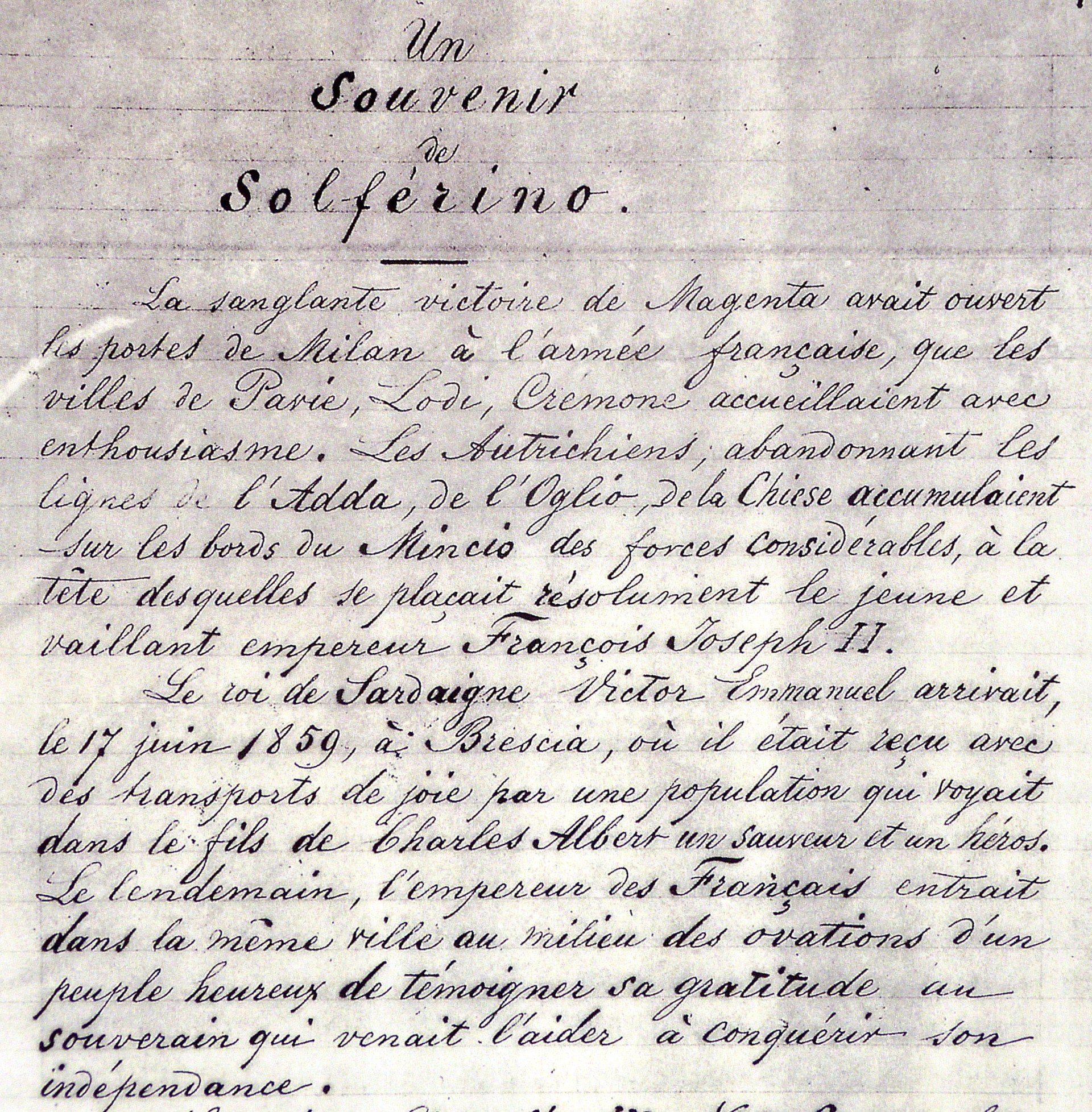
World and Value: European Humanitarianism as Narration and Construction
The project examines narratives of humanitarianism from the 19th century to the present. Its focus lies on literary and biographical texts (novels, biographies, graphic novels, etc.) about and by organizations such as the ICRC and Médecins Sans Frontières, two of Europe’s most influential humanitarian institutions. It explores how the narrativization of humanitarian ethics and practice not only reflects but also shapes culturally embedded conceptions of humanitarianism through its specific (e.g. architextual, medial, and rhetorical) modes of representation. In the medium term, the project seeks to deepen our understanding of the role of humanitarian narratives in shaping public perceptions of humanitarian work and competing global value systems. The project is conceived as a literary-studies contribution to peace and conflict research. In the long term, it aims to contribute to establishing the Humanitarian Humanities as a potential research field in its own right.
Research Stay at the Library of the International Committee of the Red Cross, Geneva, CH (10/2025)
Research Associates: Kathrin Ünzen & Carla Seibert| Funding: Career Fund, University of Koblenz (IFGPZ)
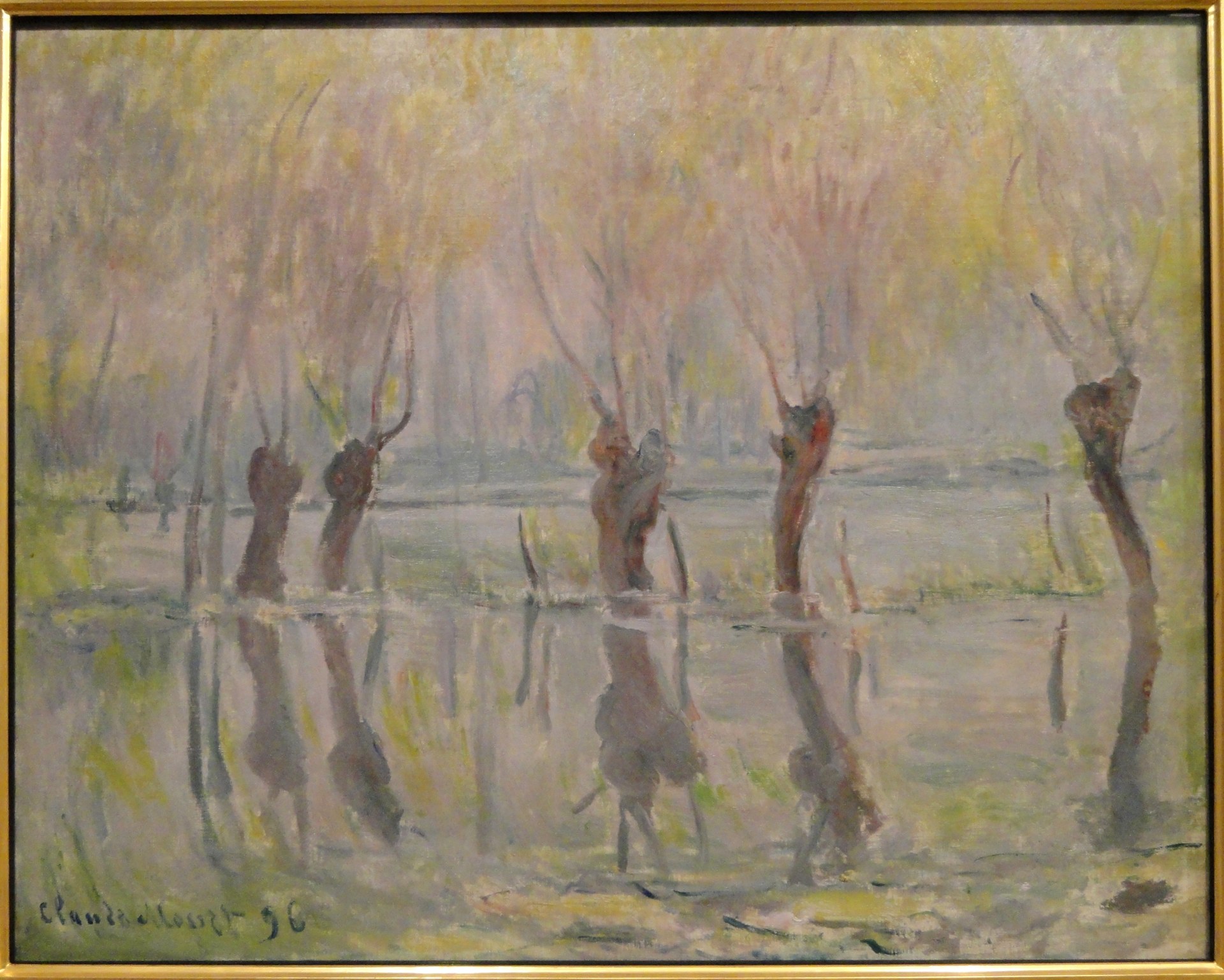
Psychogeographies of Flooding
The 2021 European flood disaster made the devastating effects of flooding on humans and nature unmistakably visible — not only ecologically and materially, but also psychologically and socioculturally. Given the continuing reality of this natural phenomenon, the motif of flooding is deeply rooted in literature. As an essential part of cultural history, literary representations of floods both reflect and shape individual and collective perceptions of flooded landscapes and events. While other disasters have been widely explored in literary studies, systematic research on flood literature remains scarce. This project therefore investigates psychogeographies in (auto-)fictional flood narratives, analysing how literature addresses the impact of flood experiences and environments on mental health.
Research Associate: Ecem Cetin| Funding: NaWi Program, University of Koblenz
Current Research Groups
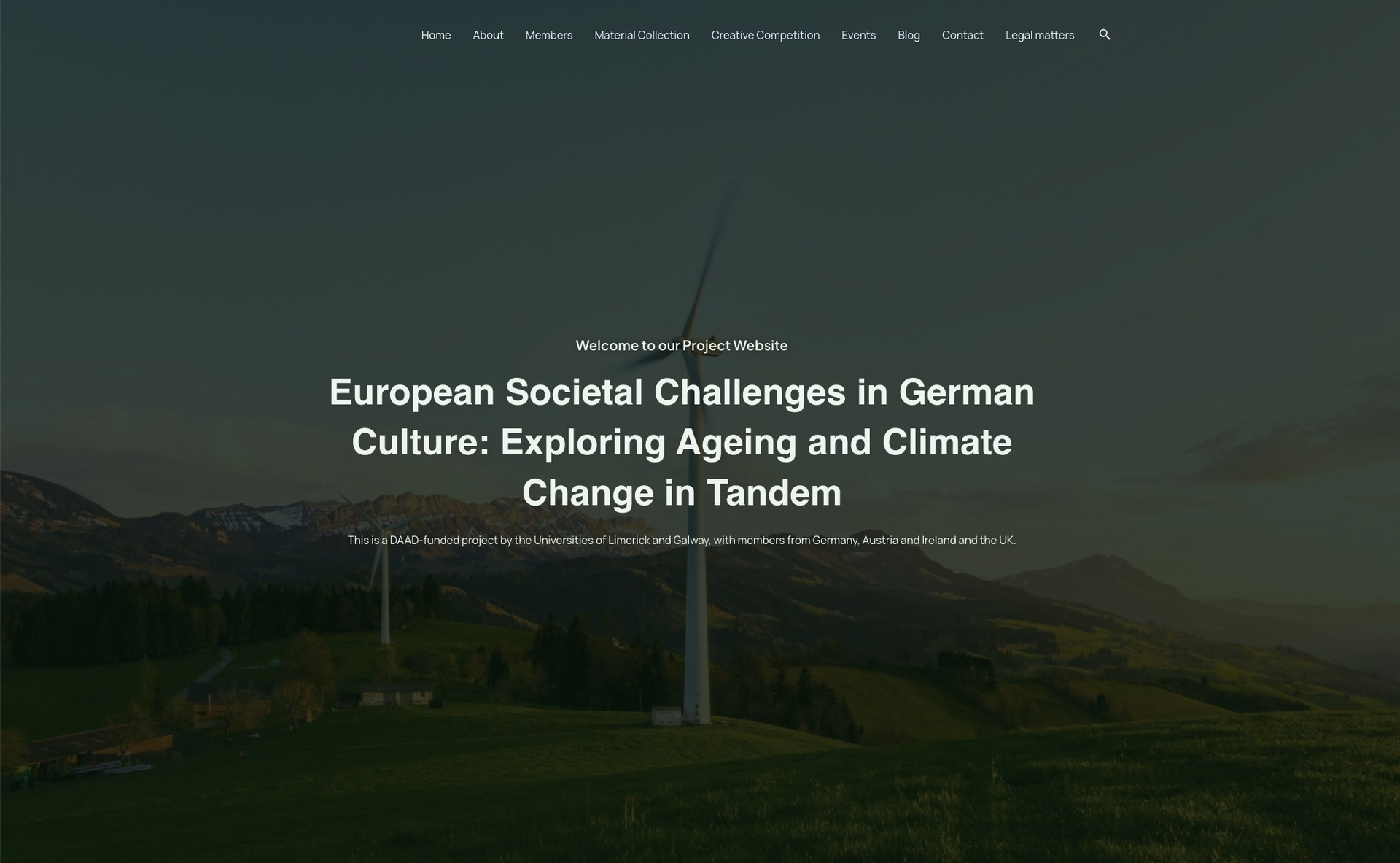
European Societal Challenges in German Culture: Exploring Ageing and Climate Change in Tandem
DAAD Research Group (2025–2026)
Principal Investigators: Michaela Schrage-Früh (University of Limerick) & Tina-Karen Pusse (University of Galway)
Website: https://ageing-and-climate-change-in-german-culture.com
Completed Research Projects
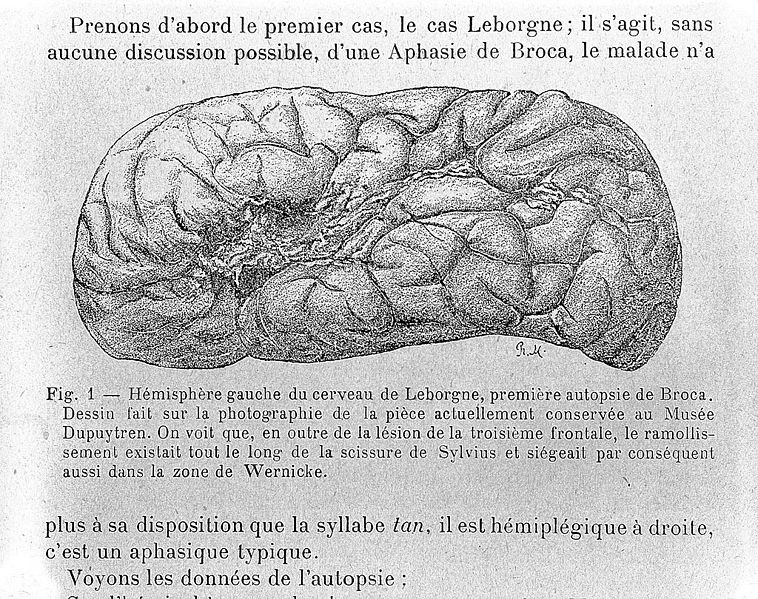
Poetics of Aphasia. Linguistic Ineffability in and as Poetry (19th–21st Century)
“One should, when writing, be able to spread out an immeasurable array of words all around oneself, from which one would only have to choose,” noted the Swiss writer Charles-Ferdinand Ramuz in his diary (Ramuz 1982, p. 411), a few months after a stroke had left him aphasic. The involuntary breaking off and breaking out of language that characterizes the speech disorder of aphasia (from the Greek aphasía, 'speechlessness') represents for writers in particular a form of loss of language that seems diametrically opposed to the art of literary wordcraft. One is therefore almost tempted to equate aphasia with the realized “death of the author” – and yet, as destructive as the pathological disruptions and disintegrations of aphasia may be, the breakdown of the familiar and established can at times also open the way to linguistic and literary creation. It is at this juncture that the project begins, examining literary – precisely, poetic – engagements with linguistic ineffability. Drawing on examples from the German-speaking and U.S.-American cultural spheres, the study approaches the phenomenon of aphasia – understood both in a clinical and a metaphorical sense – in three forms: (1) aphasia as experience, (2) aphasia as motif, and (3) aphasia as style. In doing so, the project ultimately explores how literary scholarship’s engagement with aphasia and aphasiology — essentially ex negativo — may contribute to a deeper understanding of poetry and language itself.
Habilitation project
K. Fürholzer: Poetik der Aphasie. Sprachliche Ohnmacht in und als Dichtung (19.-21. Jhd.) (= Beiträge zur Literaturtheorie und Wissenspoetik). Heidelberg: Winter 2026. [forthcoming]
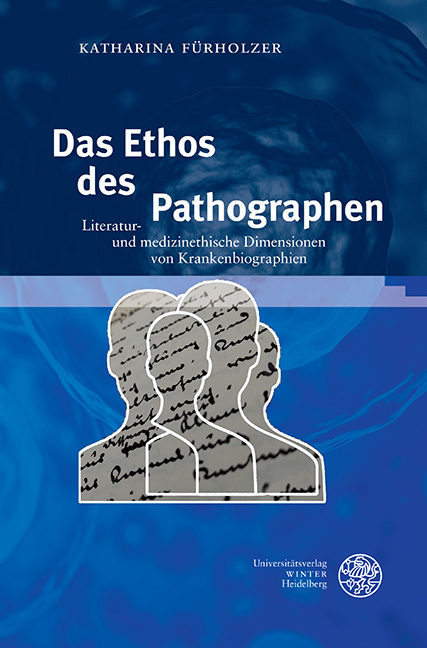
The Pathographer's Ethos. Literary and Medical-Ethical Dimensions of Illness Biographies
Those who are ill require special ethical protection. Authors of pathographies or illness biographies therefore bear a specific responsibility, since their texts center on a person who, due to illness, is highly vulnerable—that is, susceptible to harm and in need of protection. This responsibility has thus far been underestimated. The doctoral project set out to address this gap by aligning medical ethics’ sensitivity to vulnerability with literary studies’ sensitivity to textuality. Methodologically grounded in the Medical Humanities, it subjected genres from medicine and literature to a form of text analysis oriented toward genre ethics. Conceived less as a source of definitive answers than as a foundational outline of the problem, the dissertation aims to define and discuss ethical categories of particular relevance to pathographic writing—in other words, it strives toward an ethos of the pathographer.
PhD project
K. Fürholzer Das Ethos des Pathographen. Literatur- und medizinethische Dimensionen von Krankenbiographien. Heidelberg: Winter 2019. [= Münster & Gent, Univ., Joint-Ph.D. 2017]
Publications
Books
Monographs
- Das Ethos des Pathographen. Literatur- und medizinethische Dimensionen von Krankenbiographien. Heidelberg: Winter 2019. [Zugl.: Münster & Gent, Univ., Joint-Ph.D. 2017]
- K. Fürholzer: Poetik der Aphasie. Sprachliche Ohnmacht in und als Dichtung (19.-21. Jhd.) (= Beiträge zur Literaturtheorie und Wissenspoetik). Heidelberg: Winter 2026. [forthcoming]
Edited Academic Journals
- Re:visit. Humanities & Medicine in Dialog (2022–) (co-editor, with Julia Pröll & Maria Heidegger)
- Textpraxis. Digitales Journal für Philologie (2013–2017) (co-editor, GSPoL Münster)
Edited Volumes & Special Issues
- Katharina Fürholzer & Katrin Frisch (eds.): Mitläufer, Wendehälse, Karrieristen. Opportunistische Figuren in Literatur- und Filmgeschichte [= Special Issue Komparatistik Online] (2025).
- Katharina Fürholzer & Marcella Fassio (eds.): (Un-)Sagbarkeit des Todes. Gegenwärtige Literarisierungen und Visualisierungen des Sterbens [= Special Issue Re:visit. Humanities & Medicine in Dialogue 4:1] (2025).
- Katharina Fürholzer, Marcella Fassio & Johann-Christian Põder (eds.): Imaginationen des Lebensendes. Ärztliche Auseinandersetzungen mit Tod und Sterblichkeit. Berlin: transcript 2025.
- Katharina Fürholzer & Julia Pröll (eds.): Fluchtlinien der Sprache(n). Migration, Kulturkontakt und Sprachbewegung im Spiegel der Medical Humanities. Berlin: de Gruyter 2023.
- Florian Steger & Katharina Fürholzer (eds.): Lyrik und Medizin. Heidelberg: Winter 2019.
- Katharina Fürholzer & Yulia Mevissen (eds.): Briefkultur und Affektästhetik. Heidelberg: Winter 2017.
Forthcoming
- Growing Together: The Multifaceted Connections between Posttraumatic Experiences, Literature and Art Therapy. Frankfurt a. M.: Peter Lang (ed. with Dagmar Reichardt & Julia Pröll).
- Creativity as (Self-)Care: The Art of Coping at the End of Life [= Cultures of Aging and Care]. Berlin: de Gruyter (ed. with Ieva Stončikaitė).
- Klima im Wandel der Zeit. Der literarische Kanon aus Perspektive des Ecocriticism. Berlin: transcript (ed. with Marcella Fassio). [Edited Volume]
- (Ein-)Gebildete Hochstapelein. Das Impostor-Syndrom in Literatur und Film [= Special Issue literatur für leser:innen] (ed. with Marcella Fassio).
- Pflegepoetik. Repräsentationen und Schriften von professionell Pflegenden (ed. with Sabine Nover). [Edited Volume]
- Interdisziplinarität für die Literaturwissenschaften. Berlin: de Gruyter. [Handbook]
Articles
Journal Articles
- „Selbst seine Augen sprachen nicht mehr“. Goethe und die Aphasie. In: Oxford German Studies 54.2 (2025), S. 163–180. https://doi.org/10.1080/00787191.2025.2463026.
- Frederik Schou-Juul, Ieva Stončikaitė, Katharina Fürholzer & Kate Irving: Reimagining the ‘Lost’ Narratives of Advanced Dementia Through Literature and Critical Fabulation. In: Medical Humanities (2025), S. 1–10. https://doi.org./10.1136/medhum-2025-013249.
- Katharina Fürholzer & Katrin Frisch: Opportunistische Figuren in Literatur und Film. Einführende Reflexionen. In: Dies. (Hg.): Mitläufer, Wendehälse, Karrieristen. Opportunistische Figuren in Literatur- und Filmgeschichte [= Themenheft Komparatistik Online] (2025), S. 1–16. https://www.komparatistik-online.de/index.php/komparatistik_online/article/view/242/198.
- Frank Ursin, Katharina Fürholzer & Sabine Salloch: Metaphors in Digital Radiology: Ethical Implications for Responsibility Assignments of Human-AI Imaginaries. In: AI & Society. Knowledge, Culture and Communication (2025). https://doi.org/10.1007/s00146-025-02270-5.
- Fady Joudah and the reintegration of the disintegrated bodies of displacement. In: PhiN. Philologie im Netz 97 (2024), S. 37–50. https://web.fu-berlin.de/phin/phin97/p97t3.pdf.
- Aesthetic témoignage. Refugee Poets as Humanitarian Aid Poets. In: ZMF. Zeitschrift für Migrationsforschung (2024). https://doi.org/10.48439/zmf.243.
- Expressing suppression. Listening to silent narratives of pain in Torgny Lindgren’s Hummelhonung. In: Scandinavian Studies 96:1 (2024), S. 82–104. https://doi.org/10.3368/sca.96.1.82.
- Post-mortem Dignity between Piety and Professionalism. Plea for a Moment of Silence in Everyday Clinical Practice. In: Ethik in der Medizin 35 (2023), S. 529–544. https://doi.org/10.1007/s00481-023-00787-1.
- Age(ism) in Hans Christian Andersen’s fairy tales. In: Frontiers of Narrative Studies 9:1 (2023), S. 1–15. https://doi.org/10.1515/fns-2023-2003.
- Herman Bang als Dichter. In: Orbis Litterarum (2023), S. 1–18. https://www.doi.org/10.1111/oli.12387.
- Noisy nuisance. Chris Ireland’s aphasic poetry. In: English Studies in Canada 46:2-4 (2023), S. 197–215.
- Postmortale Menschenwürde zwischen Pietät und Professionalität. Plädoyer für eine Schweigeminute im klinischen Alltag. In: Re:visit. Humanities & Medicine in Dialogue 1 (2022), S. 5–27. https://doi.org/10.57974/Re:visit_2022_1.02.
- Konformismus und Kritik in Margarethe von Trottas Hannah Arendt (2012). In: Germanica 70 (2022), S. 83–96.
- Der kranke Körper als Text. Zum poetischen Werk der schwedischen Ärzteliteratin Eva Ström. In: Jahrbuch Literatur und Medizin 13 (2022), S. 163–174.
- Unerhörte Narrative. Die medizinische Indikation zwischen Bericht und Erzählung. In: Ethik in der Medizin 32:3 (2020), S. 267–277. https://doi.org/10.1007/s00481-020-00585-z.
- Katharina Fuerholzer, Maximilian Schochow, Richard Peter & Florian Steger: Medical Students’ Acquaintance with Core Concepts, Institutions and Guidelines on Good Scientific Practice. A Pre- and Post-Questionnaire Survey. In: Science and Engineering Ethics 26:3 (2020), S. 1827–1845. https://doi.org/10.1007/s11948-020-00215-3.
- Katharina Fuerholzer, Maximilian Schochow & Florian Steger: Good scientific practice. Developing a curriculum for medical students in Germany. In: Science and Engineering Ethics 26:1 (2020), S. 127–139. https://doi.org/10.1007/s11948-018-0076-7.
- Schwedische Ärzteliteraten vom 18. bis 21. Jahrhundert. In: Jahrbuch Literatur und Medizin 11 (2019), S. 85–104.
- Michael S. Balzer, Christian Clajus, Gabriele Eden, Frank Euteneuer, Hermann G. Haller, Heike Martin, Margret Patecki, Roland Schmitt, Marcus Hiss & Katharina Fuerholzer: Patient perspectives on renal replacement therapy modality choice: a multicenter questionnaire study on bioethical dimensions. In: Peritoneal Dialysis International 39:6 (2019), S. 519–526. https://doi.org/10.3747/pdi.2018.00285.
- Katrin Frisch & Katharina Fürholzer: Zu Risiken und Nebenwirkungen ... Literatur zwischen Instrumentalisierung und Indexierung. In: Kritische Ausgabe 36 (2019), S. 36–42.
- Katharina Fürholzer & Florian Steger: Kurt Schneider – auch ein Ärzteliterat. In: Jahrbuch Literatur und Medizin 10 (2018), S. 129–136.
- Artistic enhancement. Literature and film as mirror and means of human enhancement. In: Folia Philosophica. Ethica – Aesthetica – Practica 32:6 (2018), S. 71–85. https://doi.org/10.18778/0208-6107.32.05.
- ‚Eine Explosion der Sprache‘. Zur Filmbiographie der taubblinden Marie Heurtin (1885–1921). In: Virus – Beiträge zur Sozialgeschichte der Medizin 17 (2018), S. 217–226. https://doi.org/10.1553/virus17s223.
- Michael S. Balzer*, Katharina Fürholzer*, Frank Euteneuer, Hermann Haller & Marcus Hiss: Patient perspectives in peritoneal vs. hemodialysis: design and methods of a multicenter questionnaire study on bioethical dimensions. In: Nieren- und Hochdruckkrankheiten 47 (2018), S. 167–172. https://doi.org/10.5414/NHX01912.
- Katharina Fürholzer & Sabine Salloch: Reading Literary Fiction as Moral Enhancement. In: American Journal of Bioethics – Neuroscience 7(2) (2016), S. 104–106.
- Alter Ego. Ein philologischer Blick auf Text und Autor der Patientenverfügung. In: Jahrbuch Literatur und Medizin 8 (2016), S. 165–182.
Book Chapters
- Katharina Fürholzer & Marcella Fassio: Impostor Moms? Challenging Expectations of Motherhood in Literature and Film. In: Patricia A. Gwozdz & Davina Höll (eds.): Vulnerability of Pregnant Bodies, Motherhood & Mothering from Ancient Times to the Modern Times. New York: Routledge. [forthcoming]
- Ieva Stončikaitė & Katharina Fürholzer: Ethics in Dementia and Frailty. Gabriel García Márquez’s Until August. In: Susan Pickard & Paul Higgs (eds.): Frailty, Illness, and Health in Deep Old Age: Perspectives from Medical Sociology and Social Gerontology. London: University College London Press 2026. [forthcoming]
- Representing the plight of the humanitarian aid worker. Guy Delisle’s graphic novel Hostage (2017/2020). In: Dagmar Reichardt, Katharina Fürholzer & Julia Pröll (eds.): Growing Together: The Multifaceted Connections between Posttraumatic Experiences, Literature and Art Therapy. Frankfurt a. M.: Peter Lang. [forthcoming]
- Mourning the anonymous dead. Pain and compassion in Vienna’s Cemetery of the Nameless. In: Maria Heidegger & Tine van Osseander (eds.): Pain. Cultivation, Contemplation and Relief. Florenz: Firenze UP. [forthcoming]
- Erzählte Gefahr. Narrative Konstruktionen humanitärer Krisen in Daniel Kehlmanns Ruhm (2009). In: Solveig Lena Hansen & Henning Schmidt-Semisch (eds.): Kunst – Kultur – Gesundheit. Perspektiven der Public Health Humanities. Bielefeld: transcript 2025, S. 131–145.
- Der Wert des Mensch(lich)en – Literatur von Angehörigen nach Suizid. In: Ella Margaretha Karnatz, Misa Fujiwara, Waltraud Maierhofer & Federica La Manna (eds.): Narrative psychischer Krisen seit 2000. Bielefeld: transcript 2025, S. 201–217.
- Aphasie als Tod des Autors. Seelische Auswirkungen sprachlicher Ohnmacht bei C.F. Ramuz. In: Marcella Fassio (Hg.): Mental Health erzählen in Literatur und Medizin. Berlin: de Gruyter 2025, S. 163–181. https://doi.org/10.1515/9783111591933-973.
- Lyrik nach Suizid. Enttabuisierungen privater und beruflicher Betroffenheit. In: Marga B. Wagner-Pischel (ed.): Heilkraft der Literatur. Zur Bedeutung der Literatur für eine menschliche Medizin. Springer 2025, S. 70–91.
- Katharina Fürholzer, Marcella Fassio & Johann-Christian Põder: Einführung. Imaginationen des Lebensendes. In: Dies. (eds.): Imaginationen des Lebensendes. Ärztliche Auseinandersetzungen mit Tod und Sterblichkeit. Berlin: transcript 2025, S. 7–32. https://doi.org/10.14361/9783839474563-002.
- Arno Görgen & Katharina Fürholzer: Ludonarrative Pathographien. Typen und Funktionen autopathographischer Spiele. In: Rudolf Inderst et al. (eds.): Gamepathy#1. IU: IU Repository 2025, S. 45–62. https://doi.org/10.56250/4052.
- “Verschlungen sitze ich / neben der Sprache”. Aphasic poetry between medicine and metaphor. In: Stephanie Hilger (ed.): The Health Humanities in German Studies. London: Bloomsbury 2024, S. 23–34. https://www.doi.org/10.5040/9781350296220.ch-1.
- A Journey in Reverse. Myths of a Foreign Father in Aris Fioretos’ Halva Solen. In: Heike Hartung, Roberta Maierhofer & Christian Schmitt-Kilb (eds.): Masculinities Aging between Cultures. Relationality, Kinship and Care in Dialogue. Bielefeld: transcript 2024, S. 109–125. https://www.doi.org/10.14361/9783839469064-007.
- Katharina Fürholzer & Julia Pröll: Migration, Kulturkontakt und Sprachbewegung im Spiegel der Medical Humanities. In: Dies. (eds.): Fluchtlinien der Sprache(n). Migration, Kulturkontakt und Sprachbewegung im Spiegel der Medical Humanities. Berlin: de Gruyter 2023, S. 3–30. https://doi.org/10.1515/9783111201566-001.
- Im Namen des Maskenspiels. Pseudonyme zwischen Gesichtsverlust und Ehrerhalt. In: Sebastian Donat, Beate Jordan-Eder, Alena Heinritz, Magdalena Leichter & Martin Sexl (eds.): Alles Verblendung? Was wir (nicht) wahrnehmen können, sollen, wollen. Bielefeld: Aisthesis 2022, S. 415–425.
- Living oblivion. Poetic narratives of dementia and fatherhood in Pia Tafdrup’s Tarkovsky’s Horses. In: Heike Hartung, Rüdiger Kunow & Matthew Sweney (eds.): Ageing Masculinities, Alzheimer’s and Dementia Narratives. London: Bloomsbury 2022, S. 73–90. https://www.doi.org/10.5040/9781350230637.ch-004.
- Katharina Fürholzer & Florian Steger: Einzigartiges erzählen. Lars Gustafssons Der Tod eines Bienenzüchters und der Wert des Singulären in Ethik und Ästhetik. In: Daniel Teufel, Anita Wohlmann & Pascal O. Berat (eds.): Narrative Medizin: Praxisbeispiele aus dem deutschsprachigen Raum. Köln: Böhlau 2021, S. 169–191. https://www.doi.org/10.7788/9783412523619.165.
- Hygieia, die Göttin der Sauberkeit? Das Konzept der Hygiene als Allegorie, Metonymie, Metapher und Symbol. In: Amélie Bendheim & Jennifer Pavlik (eds.): Gesundheit als Metapher. Heidelberg: Winter 2021, S. 130–151.
- Vulnerabilität und Verantwortung. Ethische Implikationen der Produktion und Rezeption von Pathographien. In: Arno Görgen & Stefan Simond (eds.): Krankheit in Digitalen Spielen. Interdisziplinäre Betrachtungen. Bielefeld: transcript 2020, S. 75–95. https://www.doi.org/10.14361/9783839453285-005.
- Narration without borders. Migration, narrative medicine and Témoignage in the public work of Médecins Sans Frontières (Doctors Without Borders). In: Florian Steger, Marcin Orzechowski, Giovanni Rubeis & Maximilian Schochow (eds.): Migration and medicine. Freiburg i. Br.: Alber 2020, S. 140–154.
- Florian Steger & Katharina Fürholzer: Lyrik und Medizin – eine Einführung. In: Dies. (eds.): Lyrik und Medizin. Heidelberg: Winter 2019, S. 7–18.
- Symptomatische Rhetorik. Zur Verschmelzung von Sprache und Symptom in Marya Hornbachers Madness. A Bipolar Life (2008) und Elisabeth Tova Baileys The Sound of a Wild Snail Eating (2010). In: Jan Standke & Dieter Wrobel (eds.): Krankheit erzählen. Texte der Gegenwartsliteratur und Perspektiven für den Literaturunterricht (= Beiträge zur Didaktik der deutschsprachigen Gegenwartsliteratur 3). Trier: WVT Verlag 2019, S. 171–190.
- Sprachliche Repräsentation von gesellschaftlicher Diversität. Eine ethische Analyse aus der Perspektive der Medical Humanities. In: Florian Steger (ed.): Diversität im Gesundheitswesen. Freiburg i. Br.: Alber 2019, S. 205–219.
- Katrin Frisch & Katharina Fürholzer: ‚Was jetzt kommt, das darf man nicht machen.‘ In: Haimo Stiemer, Dominic Büker & Esteban Sanchino Martinez (eds.): Social Turn? Das Soziale in der gegenwärtigen Literatur(-wissenschaft). Weilerswist: Velbrück 2017, S. 192–218.
- Katharina Fürholzer & Yulia Mevissen: Einleitung: Briefkultur und Affektästhetik. In: Katharina Fürholzer & Yulia Mevissen (eds.): Briefkultur und Affektästhetik (= Beiträge zur neueren Literaturgeschichte, Bd. 369). Heidelberg: Winter 2017, S. 7–25.
- Child Coping Competence. Astrid Lindgren's The Brothers Lionheart from a medical ethics’ perspective. In: Nina Holst, Anika Ullmann & Iris Schäfer (eds.): Narrating Disease and Deviance in Media for Children and Young Adults / Krankheits- und Abweichungsnarrative in kinder- und jugendliterarischen Medien. Frankfurt a.M.: Peter Lang 2016, S. 117–139.
- How to write a letter. Physician’s letters from the viewpoint of Medical Humanities. In: Sabine Salloch, Verena Sandow, Jan Schildmann & Jochen Vollmann (eds.): Ethics and Professionalism in Healthcare. Transition and Challenges. Ashgate: Farnham 2016, S. 25–35.
- Hinter der Agonie der Sprache der Geist. Zum aphasischen Bewusstsein in Tomas Tranströmers Lyrik. In: Aneta Jachimowicz & Tomasz Żurawlew (eds.): Geisteskultur zwischen Ästhetik und Poetik. Würzburg: Königshausen & Neumann 2016, S. 215–231.
- ‚Iiiieh! Wie eklig!‘ Kinderliteratur als Medium der Hygieneaufklärung. In: Hans-Werner Ingensiep & Walter Popp (eds.): Hygiene-Aufklärung im Spannungsfeld zwischen Medizin und Gesellschaft (= Lebenswissenschaften im Dialog). Freiburg i.Br.: Alber 2016, S. 309–328.
- Die Unsäglichkeit des Seins. Vom Nutzen literarisierter Endlichkeitserfahrungen für die Arzt-Patient-Kommunikation. In: Aneta Jachimowicz, Alina Kuzborska & Dirk H. Steinhoff (eds.): Imaginationen des Endes (= Warschauer Studien zur Kultur- und Literaturwissenschaft, Bd. 6). Frankfurt a.M. u.a.: Peter Lang 2015, S. 165–182.
Encyclopedia & Handbook Entries
- Sprache im Kontext von Medizin und Lebenszeit. In: Sonja Deppe, Anne Clausen, Isabella Marcinski-Michel, Mark Schweda & Claudia Wiesemann (eds.): Handbuch Medizin und Lebenszeit. Gutes Leben im Kontext neuer Chancen und Herausforderungen. Stuttgart: Metzler 2024. https://doi.org/10.1007/978-3-662-68418-4_32-1.
- Katharina Fürholzer & Julia Pröll: An Aesthetics of Relating and its (Therapeutic) Potentials. A Transcultural Perspective on Literature, Storytelling and the Power of the (Spoken) Word. In: Martin Poltrum, Michael Musalek, Helena Fox, Kathleen Galvin & Yuriko Saito (eds.): Oxford Handbook of Mental Health and Contemporary Western Aesthetics. Oxford: Oxford UP 2023, S. C31S1–C31N37. https://doi.org/10.1093/oxfordhb/9780192866929.013.31.
Miscellaneous
Editorials, Blog Posts & Interviews
- Katharina Fürholzer & Marcella Fassio. Editorial. In: Dies. (eds.): (Un-)Sagbarkeit des Todes. Gegenwärtige Literarisierungen und Visualisierungen des Sterbens [= Special Issue Re:visit. Humanities & Medicine in Dialogue 4:1] (2025), S. 1–6. https://doi.org/10.57974/Re:visit_2025_4.1_0.
- Katharina Fürholzer, Maria Heidegger & Julia Pröll: Was uns verschwistert … Die Herausgeberinnen von Re:visit. Humanities and Medicine in Dialogue lesen die ZDS. In: ZDS. Zeitschrift für Disability Studies 1 (2025), S. 1–5. https://doi.org/10.15203/ZDS_2025_1.06.
- Lucas Milling & Katharina Fürholzer: Zum 250. Geburtstag. Die Bedeutung Caspar David Friedrichs für die Medizin. In: Präfaktisch.de. Ein Philosophieblog (2025). https://praefaktisch.de/002e/friedrichs-medizin/.
- Aphasic Poetry: Making sense of it with Katharina Fuerholzer [Interview]. SpokenWeb Research Symposium Profiles. In: SpokenWeblog (2020). https://spokenweb.ca/aphasic-poetry-making-sense-of-it-with-katharina-fuerholzer.
- Michael S. Balzer, Katharina Fuerholzer, Roland Schmitt, Margret Patecki, Christian Clajus, Frank Euteneuer, Hermann G. Haller & Marcus Hiss: SP615. Patient perspectives on renal replacement therapy choice in peritoneal vs. hemodialysis. A multicenter questionnaire study on bioethical dimensions. In: Nephrology Dialysis Transplantation 33 (2018), S. i554.
- Sabine Salloch, Verena Sandow, Jan Schildmann & Jochen Vollmann: Ethics and professionalism in healthcare. A position paper. Unt. Mitarb. v. Sarah Berger, Andrei Famenka, Kirstin Fragemann, Katharina Fürholzer, Alex McKeown, Stephanie Rüsch, Martina Šendula-Pavelić, Dorina Maria Stănescu, Tetiana Stepurko, Clemens Tangerding & Christopher Yu. In: Sabine Salloch, Verena Sandow, Jan Schildmann, Jochen Vollmann (eds.): Ethics and Professionalism in Healthcare. Transition and Challenges. Farnham: Ashgate 2016, S. 178–180.
- Florian Steger: Prägende Persönlichkeiten in Psychiatrie und Psychotherapie. Unt. Mitarb. v. Katharina Fürholzer & Maximilian Schochow. Berlin: Medizinisch Wissenschaftliche Verlagsgesellschaft 2014.
Reviews & Reports
- Fakt und Form. Alexander Honold und Grit Schwarzkopf werfen in „Medizin“ Schlaglichter auf das weite Feld medizinischer Nonfiktion. In: literaturkritik.de 5 (2021) [review of: Alexander Honold & Grit Schwarzkopf (Hg.): Medizin. Hannover: Wehrhahn 2019].
- An den Grenzen des Irrsinns. Sven Hanuschek und Dorothee Lossin treiben den Leser an den Rand von Literatur und Wahnsinn. In: literaturkritik.de 12 (2020) [review of: Sven Hanuschek & Dorothee Lossin (Hg.): Im Irrenhaus / da sind die Irren drin. Literatur und „Wahnsinn“ seit den 1970er Jahren. Hannover: Wehrhahn 2020].
- Seymour I. Schwartz: From Medicine to Manuscript. Doctors with a Literary Legacy [review]. In: Jahrbuch Literatur und Medizin 11 (2019), S. 235–237.
- Perfide Lust an bösen Zungen. Ein Sammelband der bösen Bücher von Markus Krajewski und Harun Maye. In: literaturkritik.de 5 (2019) [review of: Markus Krajewski & Harun Maye (Hg.): Böse Bücher. Berlin: Wagenbach 2019].
- Geschlechterräume zwischen Hegemonialisierung und Marginalisierung. In: querelles-net 18(3) (2017) [review of: Jenny Bauer: Geschlechterdiskurse um 1900. Literarische Identitätsentwürfe im Kontext deutsch-skandinavischer Raumproduktion. Bielefeld: transcript 2016].
- Gegen Pönalisierung und Pathologisierung. Ulrich Horstmanns Anthologie der scharfzüngigen Selbstmordapologese. In: literaturkritik.de 9 (2015) [review of: Ulrich Horstmann (Hg.): Mit Todesengelszungen. Freisprüche für Selbstmörder von Seneca bis Cioran nebst einem Plädoyer gegen die neue Zwangsjacke. Würzburg: Königshausen & Neumann 2015].
- BMBF-Klausurwoche: ‚Ethics and Professionalism in Health Care. Backgrounds, Frameworks, Challenges‘. In: Ethik in der Medizin 27(4) (2015), S. 347–350.
- Wider kulturelle Differenzschreibungen. Rudolf Käser und Beate Schappach widmen sich in einem kulturwissenschaftlich positionierten Sammelband dem Interdiskurs von Literatur, Geschlecht und Medizin. In: literaturkritik.de 3 (2015) [review of: Rudolf Käser & Beate Schappach (Hg.): Krank geschrieben. Gesundheit und Krankheit im Diskursfeld von Literatur, Geschlecht und Medizin. Bielefeld: transcript 2014].
- Katharina Fürholzer & Konstanze Kähne: Quo vadis, Hermeneutik? ‚Natur und Norm des Verstehens: Neue Ansätze der Hermeneutik‘ als Thema des 3. Internationalen Marbacher Sommerkurses 2012. In: Geschichte der Germanistik. Historische Zeitschrift für die Philologien 43/44 (2013), S. 175–177.
Event Organization
Academic Events
- Conference Hochwasser in der Literatur, University of Koblenz (15.–16.10.2026) [with Korbinian Lindel]
- Workshop Ageing, Dementia, and Posthumous Intergenerational Relationships: A Narrative Perspective, Berlin (4.9.2026) [with Ieva Stončikaitė]
- Workshop Vergessene Stimmen der Moderne. Deutschsprachige Autorinnen der Zwischenkriegszeit, online (10.7., 17.7. & 24.7.2026) [with Marcella Fassio]
- Workshop (Ein-)Gebildete Hochstapler. Das Impostor-Syndrom in Literatur, Film und Populärkultur [Educated Impostors. The Impostor Syndrome in Literature, Film, and Popular Culture], University of Koblenz (online) (July 17, 2025) [with Marcella Fassio]
- Panel "The Uses of Literary Narrative at the End of Life – A Critical Interdisciplinary Exploration", SLSAeu 2025 Conference The Sciences of Ageing and the Culture of Youth (SAACY), London (June 4–6, 2025) [with Ieva Stončikaitė, Heike Hartung & Moritz Wigand]
- Conference Ärztliche Imaginationen des Lebensendes. Faktuale und fiktionale Konzeptionen des eigenen Alter(n)s, Sterbens und Todes [Medical Imaginations of the End of Life. Factual and Fictional Conceptions of Ageing, Dying, and Death], University of Rostock (December 7–8, 2023) [with Marcella Fassio & Johann-Christian Põder]
- Panel "Posttraumatic and Postcolonial Aspects in the Arts and Their Multifaceted Connections to Therapeutic Parameters", EFAT’s 2nd European Art Therapy Conference, Riga (June 15–17, 2023) [with Dagmar Reichardt & Julia Pröll]
- Virtual Colloquium Medical Humanities, Junge Medizinethik (JMED) (Summer Term 2023) [with Frank Ursin, Wenke Liedtke, Regina Müller & Florian Funer]
- Conference Wozu das ganze Schreiben? [Why Care to Write?], University of Ulm (December 4–6, 2018) [with Florian Steger]
- Conference Lyrik und Medizin [Poetry and Medicine], University of Ulm (March 20–22, 2018) [with Florian Steger]
- Conference Briefe als Träger und Trigger von Affekten [Letters as Carriers and Triggers of Affect], University of Münster (WWU) (July 3–4, 2015) [with Yulia Marfutova]
- Workshop "Von ethischen Fallstricken im Ästhetischen. Rechtfertigt die Freiheit der Kunst ethische Unbill?" ["Ethics and Aesthetics. Does Artistic Freedom Justify Ethical Offense?"], Winter School Social Turn in der Literatur(-wissenschaft)? [Social Turn in Literature (and Literary Studies)?], University of Münster (WWU) (December 3–5, 2014) [with Katrin Frisch]
Public Outreach
- Farewell event of the AEM Working Group “Language & Ethics” with a lecture by Hartmut Rosa on “Limits of Resonance” (online) (October 30, 2025) [with Elsa Romfeld]
- Workshop Sterben gut im Leben verorten: Welchen Raum geben wir dem Tod im klinischen Alltag? [Integrating Dying Well into Life: What Space Do We Give Death in Clinical Everyday Life?] (online) (May 23, 2023) [with Elsa Romfeld]
- Public Dialogue "Demenz neu denken. Moderne Therapien zwischen Überwachung und Autonomie" ["Rethinking Dementia. Modern Therapies Between Surveillance and Autonomy"], as part of the discussion series Universität im Rathaus [University in the Town Hall], Rostock (January 12, 2023) [with organizers from the University of Rostock and the City of Rostock]
- Workshop Abschlussrituale im klinischen Alltag. Selbstfürsorge angesichts des Todes [Closure Rituals in Clinical Practice. Self-Care in the Face of Death] (online) (May 19, 2022) [with Elsa Romfeld & Christiane Gödecke]
- Public Dialogue "Die digitale Gesellschaft. The #FailedIntellectual Goodwill Tour" ["The Digital Society. The #FailedIntellectual Goodwill Tour"], as part of the Münster Lectures. Literatur und Theorie im Dialog [Münster Lectures. Literature and Theory in Dialogue], University of Münster (WWU) (June 26, 2015) [with doctoral researchers from the GSPoL Münster]
- Public Dialogue "Der perfektionierte Mensch" ["The Perfected Human"], as part of the Münster Lectures. Literatur und Theorie im Dialog [Münster Lectures. Literature and Theory in Dialogue], University of Münster (WWU) (June 16–17, 2014) [with doctoral researchers from the GSPoL Münster]
Teaching
Curricular Teaching
German Studies, University of Koblenz
- “Einführung in die Gattung der Pathographie” [Introduction to the Genre of Pathography] (Seminar, Module 5: Genres and Forms) (Winter Term 2025/26)
- “Klimaliteratur von Goethe bis zur Gegenwart” [Climate Literature from Goethe to the Present] (Seminar, Module 13: History of German Literature / Advanced Module) (Winter Term 2025/26)
- “Interdisziplinarität für Literaturwissenschaftler” [Interdisciplinarity for Literary Scholars] (Seminar, Module 13: History of German Literature / Advanced Module) (Summer Term 2025)
- “Literatur zum Lebensende” [Literature on the End of Life] (Seminar, Module 9: Themes and Motifs) (Summer Term 2025)
- “Gut genug für die Wissenschaft? Das Impostor-Syndrom in Gegenwartsliteratur und (sozialen) Medien” [Good Enough for Academia? The Impostor Syndrome in Contemporary Literature and (Social) Media] (Seminar, Module 11: Contemporary Literature and its Didactics) (Winter Term 2024/25)
- “Einführung in die Medical Humanities” [Introduction to the Medical Humanities] (Seminar, Module 13: History of German Literature / Advanced Module) (Winter Term 2024/25)
History, Theory & Ethics of Medicine, University of Ulm (incl. Co-teaching)
- "Medizinische Terminologie” [Medical Terminology] (Lecture) (Winter Term 2018/19, Winter Term 2017/18)
- “Geschichte, Theorie und Ethik der Medizin” [History, Theory and Ethics of Medicine] (Lecture) (Winter Term 2018/19)
- “Medizinische Terminologie für Zahnmediziner” [Medical Terminology for Dental Students] (Lecture) (Summer Term 2018)
- “Gute wissenschaftliche Praxis” [Good Scientific Practice] (Seminar) (Summer Term 2019, Winter Term 2018/19, Summer Term 2018, Winter Term 2017/18, Summer Term 2017)
- “Medical Humanities” (Seminar) (Summer Term 2019, Winter Term 2018/19)
- “Theorie der Medizin” [Theory of Medicine] (Seminar) (Summer Term 2019, Winter Term 2017/18)
- “Antike Medizin” [Ancient Medicine] (Seminar) (Summer Term 2019, Summer Term 2018)
- “Forschungsethik” [Research Ethics] (Seminar) (Summer Term 2019)
- “Ethik der Medizin” [Medical Ethics] (Seminar) (Summer Term 2019, Summer Term 2017)
- “Altersmedizin” [Geriatric Medicine] (Seminar) (Winter Term 2018/19, Winter Term 2017/18)
German Studies, University of Münster
- “Briefkultur vom 18. bis 21. Jahrhundert” [Epistolary Culture from the 18th to the 21st Century] (Seminar, with Yulia Marfutova) (Winter Term 2016/17)
- “Exemplarische Textanalysen” [Exemplary Text Analyses] (Exercise, with Yulia Marfutova) (Winter Term 2016/17)
History & Ethics of Medicine, University of Halle/Saale
- Einführung in die Medizinethik” [Introduction to Medical Ethics] (Seminar) (Summer Term 2015)
Extracurricular Teaching
International Guest Lectureships & Extracurricular Teaching
- “Der Tod zwischen Ethik und Ästhetik” [Death Between Ethics and Aesthetics] (Seminar, with Marcella Fassio) (Summer Term 2023) (Summer Academy of the German Academic Scholarship Foundation, Disentis (CH))
- “Literaturwissenschaft in der Praxis. Was braucht es für eine gelungene Tagung?” [Literary Studies in Practice. What Makes a Successful Conference?] (Exercise) (Winter Term 2023/24) (Institute of Comparative Literature, University of Innsbruck (AT))
- “Medical Humanities” (Lecture & Seminar) (Winter Term 2018/19) (Institute of International Media & Cultural Management, Latvian Academy of Culture, Riga (LV))
- “Vom Struwwelpeter zum Dirty Bertie. Medizin im Kinder- und Jugendbuch” [From Struwwelpeter to Dirty Bertie. Medicine in Children’s and Young Adult Literature] (Lecture & Workshop) (Summer Term 2018) (Seminar of the German Academic Scholarship Foundation, Frankfurt a.M.)
- “Coping with Care” (Lecture & Seminar) (Winter Term 2014/15) (Institute for Culture & Literature, University of Tromsø (NO))
Contributions to Lecture Series
- “Die Narrativierung des Endes. Angehörigkeit nach Suizid” [The Narrativization of the End. Kinship After Suicide] (Summer Term 2025) (Lecture Series Die Narrativierung der Welt (Freiburger Dienstagskolloquium), University of Freiburg)
- “Fiktionale Diagnostik. Rezeption und Repräsentation von Krankheit bei Goethe” [Fictional Diagnostics. Reception and Representation of Illness in Goethe] (Summer Term 2024) (Lecture Series 250 Jahre Werther, Institute of German Studies, TU Braunschweig)
- “Wortlos Trauer sagen: Ethik und Ästhetik einer unsäglichen Emotion” [Saying Grief Without Words: Ethics and Aesthetics of an Unspeakable Emotion] (Summer Term 2023) (Lecture Series Ethik & Emotionen, Interdisciplinary Faculty, University of Rostock)
- “Mit Schimpf und Schande. Gesundheitsnarrative in der Hygieneliteratur” [With Disgrace and Dishonor. Health Narratives in Hygiene Literature] (Winter Term 2018/19) (Lecture Series Gesundheit als Metapher, Institute of German Studies, University of Luxembourg (LX))
Supervision
Term Papers
Please confirm your term paper topics with me no later than two weeks before submission (either directly in the seminar or via email). If necessary, we can arrange an appointment during my office hours (Mondays, 10 a.m.–12 p.m.).
Theses
I am happy to supervise Bachelor’s, Master’s, and doctoral theses within my field of research. Beforehand, please send me a preliminary exposé (BA: 1–2 pages; MA: 2–3 pages; PhD: 5–7 pages) containing the following information:
working title
research question(s)
preliminary hypothesis/hypotheses
methodology/approach (how exactly do you intend to investigate the topic?)
research context (including a provisional bibliography)
We will then discuss the next steps during my office hours (Mondays, 10 a.m.–12 p.m.).
Guidelines & Templates
When preparing term papers and theses, please consult the guidelines and templates (cover page, declaration of originality, etc.) provided in the institute’s download section: https://www.uni-koblenz.de/de/philologie-kulturwissenschaften/germanistik/downloadbereich
News
Conferences & Publications (CfP)

Forgotten Voices of Modernity. German Women Authors of the Interwar Period (Workshop & Edited Volume)
Engagement with German-language literary production of the interwar period is still largely dominated by canonized male authors. Numerous women writers who were productive and successful in the 1920s and early 1930s are now almost forgotten or receive only marginal attention in scholarship. This workshop and the subsequent edited volume aim to contribute to the rediscovery and critical reassessment of these authors. We are therefore seeking contributions that address their literary work, conditions of publication, networks, and reception history. We welcome both analyses of individual works and cultural- and social-historical contextualizations. Particularly encouraged are contributions that adopt intersectional perspectives and examine the entanglements of gender with other categories such as class, ethnic or religious affiliation, sexual orientation, disability, or regional background. This approach is intended to make visible those authors who, due to multiple forms of marginalization, have been especially strongly pushed out of literary memory.
Workshop: 10.7., 17.7. & 24.7.2026 (online)
CfP: Forgotten Voices (Deadline Abstracts: 15.1.2026)
In cooperation with Dr. Marcella Fassio (German Studies, University of Halle/Wittenberg)

Postcolonial Medical and Health Humanities: South Asian Literary Imaginaries and Epistemologies (Special Issue)
The special issue, to be published at the Journal of Postcolonial Writing, invites both theoretical reflections on the postcolonial medical and health humanities, and literary analyses of cultural texts which engage with the intersections of health, coloniality, and postcoloniality in South Asia and its diasporic communities. In particular, we invite contributions which will address the following four intersecting questions:
- How do cultural texts from South Asia and its diasporic communities negotiate the colonial ramifications of health and well-being in general, and how do they address the colonial history of biomedicine and the coloniality of medicine more particularly? What role do non-hegemonic perspectives play in these negotiations?
- How do South Asian cultural texts address contemporary forms of stratification, discrimination, and exploitation in biomedicine and healthcare in postcolonial contexts? How are these related to colonial and neocolonial fault-lines, but also to regional and/or globalized forms of implication beyond the North–South binary?
- What role do epistemic and linguistic issues play in different literary imaginaries of health and medicine? That is, how do different texts address questions of knowledge production, in particular the suppression and recovery of medical and health epistemologies, and in what languages?
- Through what representational politics and poetics do different texts address these questions?
CfP: Postcolonial Medical & Health Humanities (Deadline Abstracts: 1.4.2026)
In cooperation with Prof. Dr. Julia Wurr (English Literature, University of Oldenburg) & Prof. Dr. Antara Chatterjee (Literature, IISER Bhopal)

Floods in Literature (Conference & Edited Volume)
Floods are among the defining natural experiences that have been represented in literature for centuries. Literary depictions of floods articulate early forms of ecological critique, while interpretations of flooding as divine punishment persisted well into the modern era. From a research perspective, flood narratives are closely connected to questions of hydropolitics, state preparedness, media representations, and gendered semantics of the natural event and its rescuers. Situated at the intersection of literary disaster studies, ecocriticism, the blue humanities, and the recently emerging field of literary meteorology, this project explores the largely uncharted literary representations of floods – particularly in German-speaking and Central European contexts. Given the significance of rivers such as the Rhine, Neckar, and Elbe in the German literary imagination, the project seeks to map flood narratives as a distinctive part of this tradition.
Conference: 15.–16. October 2026, University of Koblenz
In cooperation with Korbinian Lindel (German Studies, University of Koblenz)

Nursing Poetics: Literary Representations and Writings by Professional Caregivers (Edited Volume)
The history of professional nursing is also a literary history – a connection that has so far received little scholarly attention. This edited volume explores how professional caregivers have appeared in literature since the 19th century, the beginning of modern nursing: as figures in novels, poems, and plays, as well as authors who process their professional experiences in literary form. It focuses on texts in which institutionalized care becomes visible as a profession, experience, or space of reflection, thereby shedding light on an underexplored dimension of literary history.
In cooperation with Prof. Dr. Sabine Nover (Nursing Science, University of Koblenz)
Current Events

Digital Lecture Series “Interdisciplinary Thanatology”
How do we shape our engagement with dying and death? What challenges, but also what potentials, arise from confronting the end of life? How do other species deal with death? And what traces does death leave in language, in various media, in social practices, or in professional contexts?
These questions touch upon fundamental conditions of human existence—and cannot be confined to a single academic discipline.
The online lecture series Interdisciplinary Thanatology addresses these issues in an explicitly interdisciplinary format. Through guest lectures by scholars from seven different disciplines, it offers insights into current research on dying, death, and mourning.
The lecture series is a joint initiative of Department 1 (Special Needs Education, Nursing Science) and Department 2 (German Studies) at the University of Koblenz. It is aimed at students, lecturers, and researchers from all disciplines, as well as at members of the interested public.
Log in and listen at: https://olat.vcrp.de/bigbluebutton/112135925519103
UNIVERSITY OF KOBLENZ
Universitätsstraße 1
56070 Koblenz


